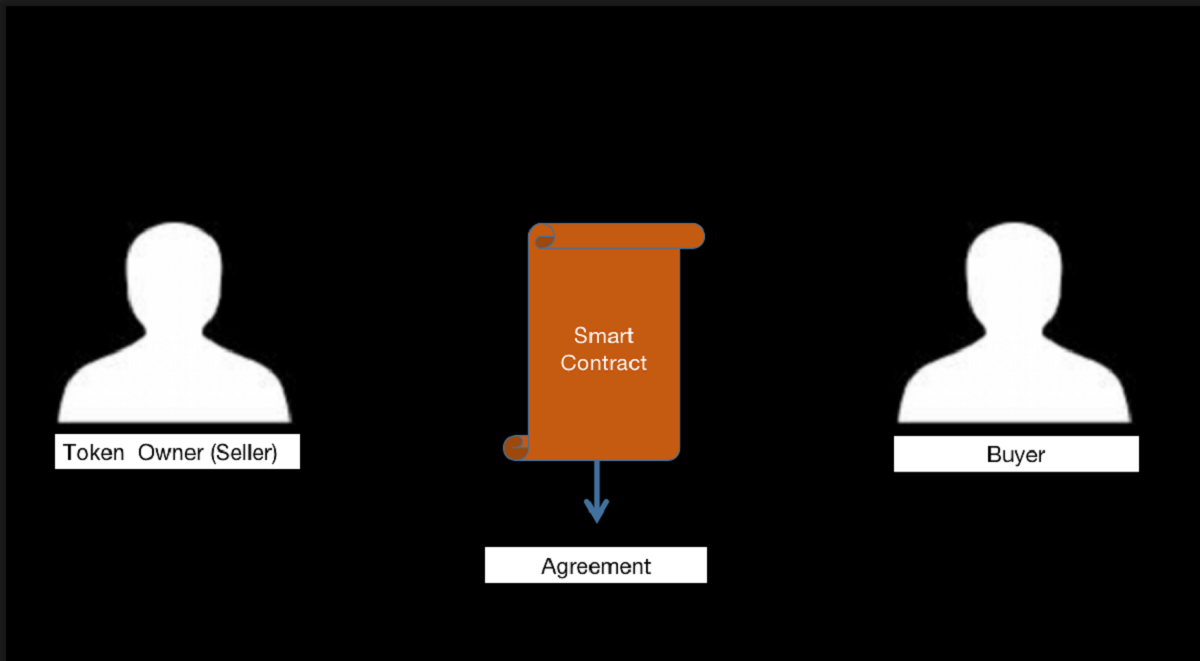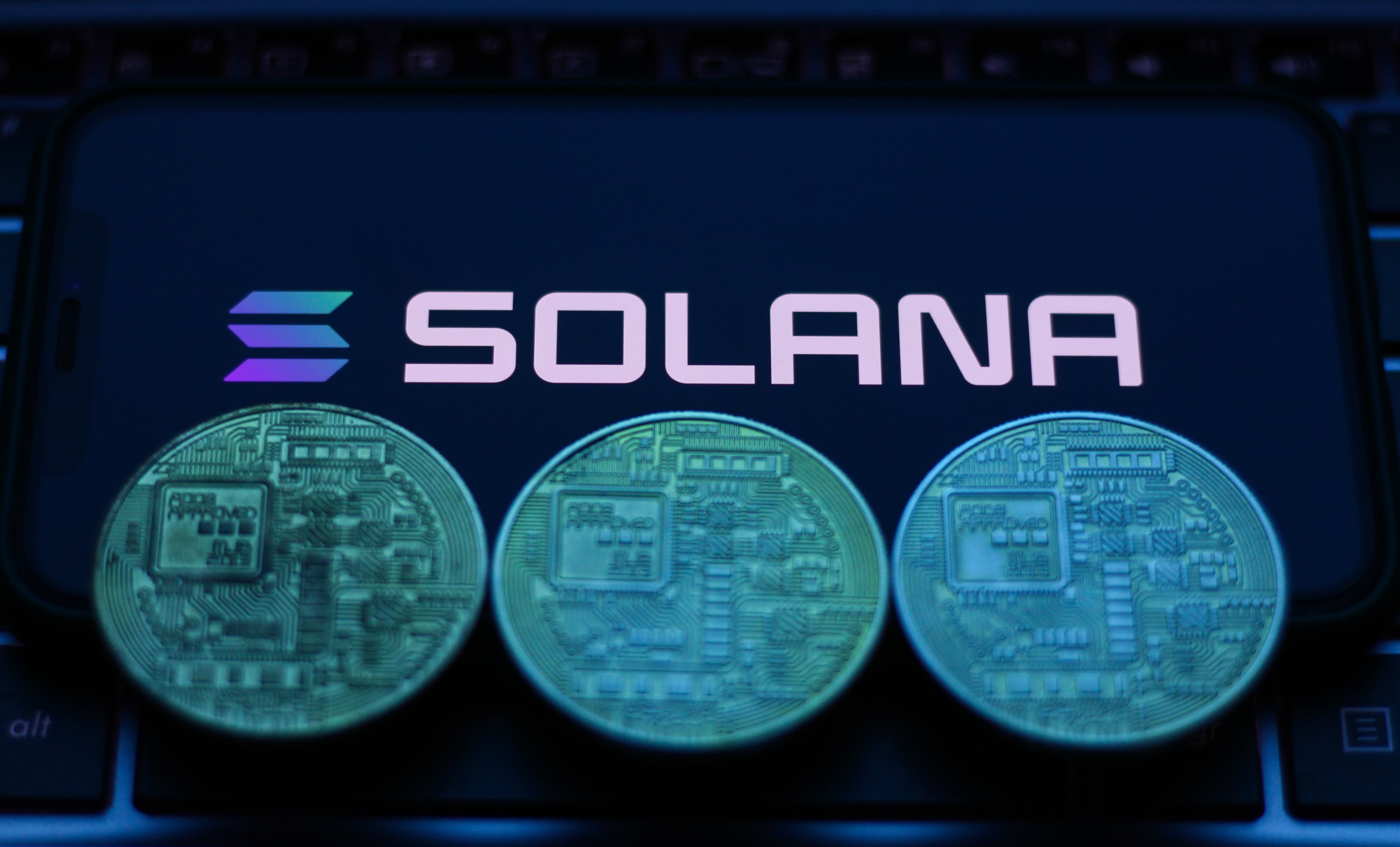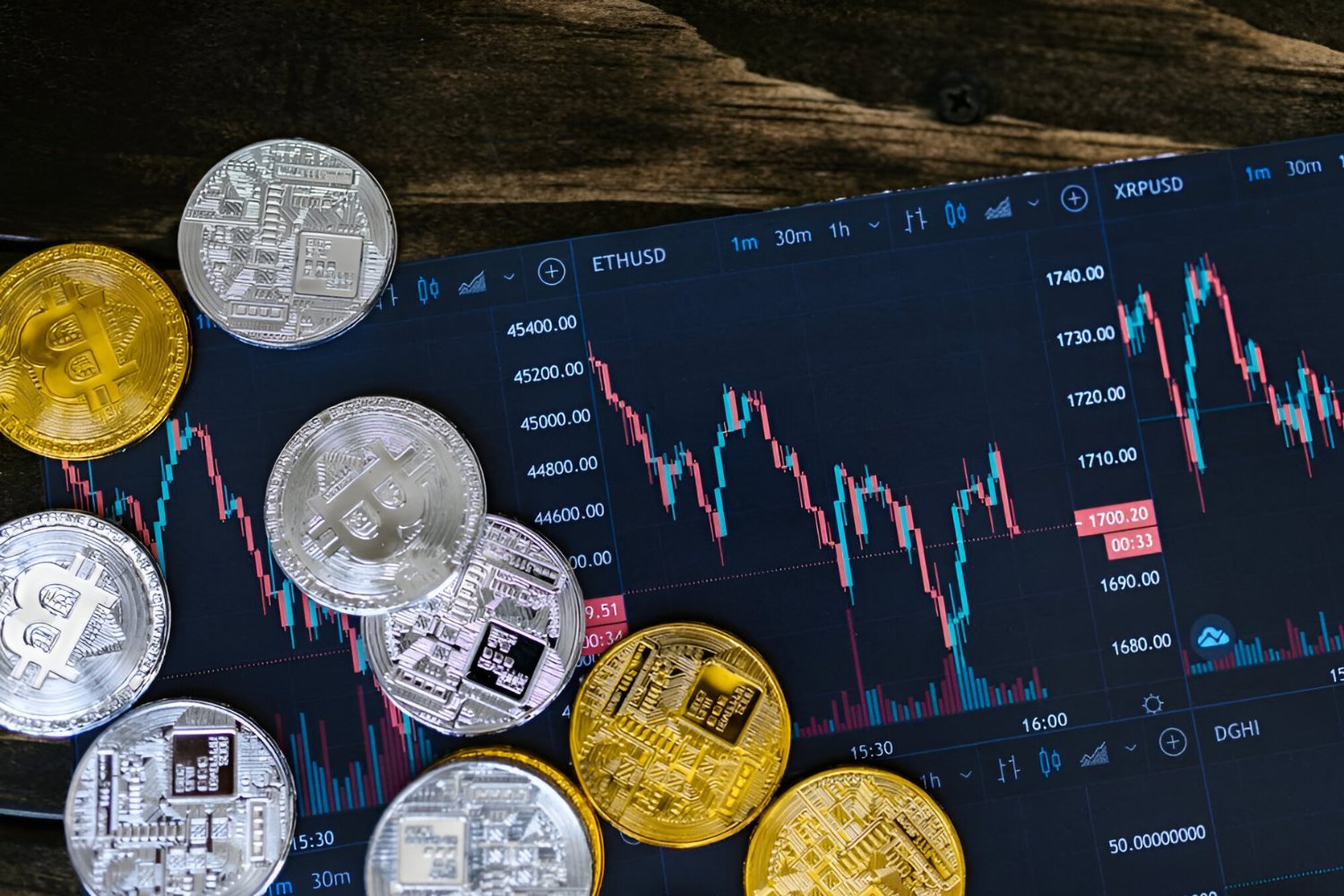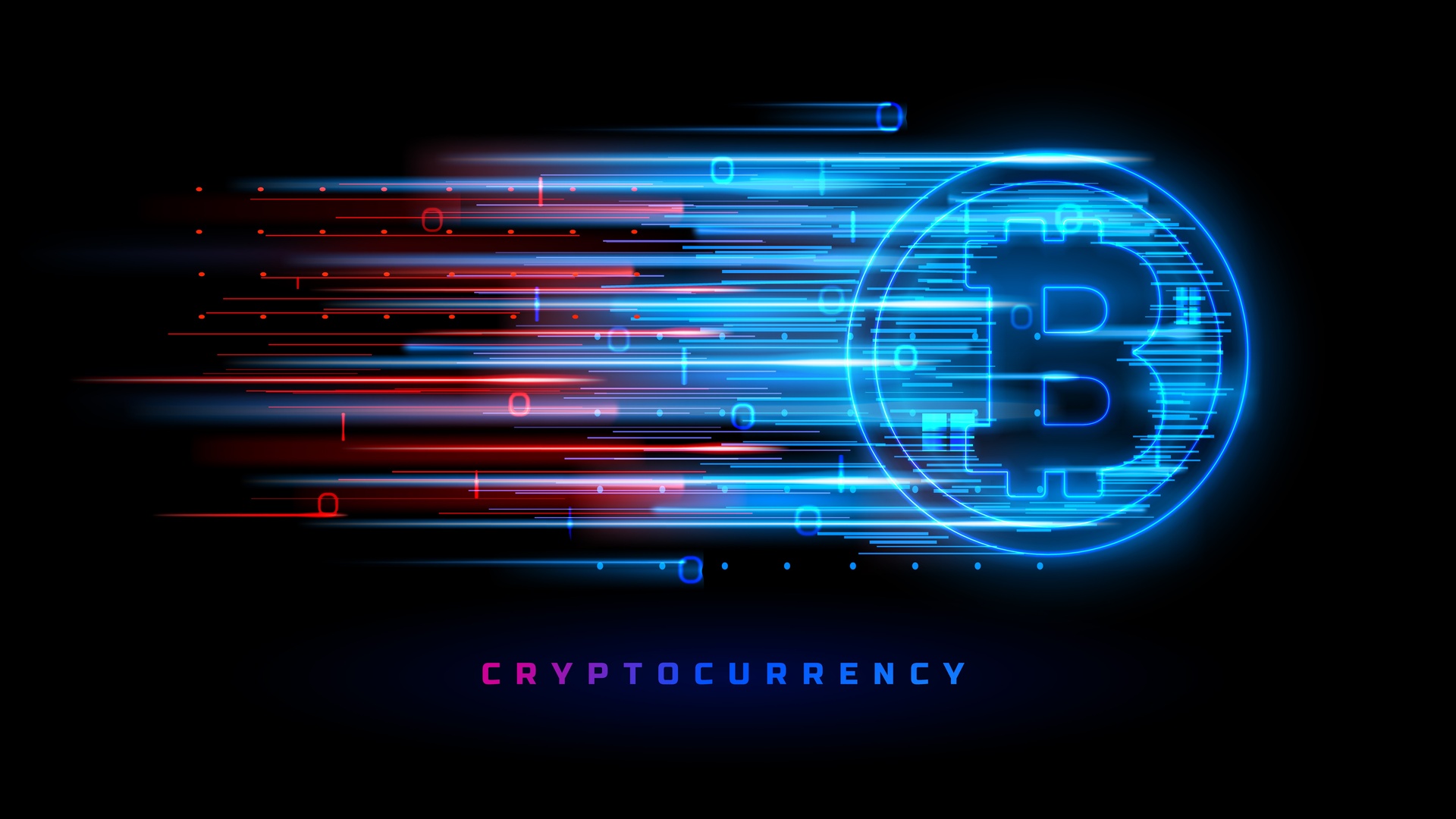Introduction
Welcome to this article on the exciting world of tokens and smart contracts! In today’s digital age, cryptocurrencies and blockchain technology have captured the imagination of many. In particular, smart contracts have emerged as a revolutionary concept that can transform various industries, offering efficiency, transparency, and security like never before.
But what exactly are tokens, and what role do they play in executing smart contracts? In this article, we’ll explore the fascinating world of tokens and delve into their significance within the realm of smart contracts. We’ll discuss the purpose of tokens in executing smart contracts, how they are used, the benefits they offer, and provide examples to further illustrate their usage.
Before diving into the specifics, let’s briefly clarify what tokens and smart contracts are. Tokens are digital assets that represent ownership or utility. They can be created, transferred, and stored within a blockchain network. On the other hand, smart contracts are self-executing contracts with predefined rules and conditions encoded into a blockchain. These contracts automatically execute when the specified conditions are met, eliminating the need for intermediaries.
Now that we have a basic understanding, let’s explore the purpose of tokens within smart contracts. Tokens serve as a means of value exchange within a blockchain ecosystem. They enable the execution of various actions, such as rewarding participants, facilitating transactions, or providing access to specific resources. By leveraging tokens, smart contracts can enable decentralized applications (dApps) to function in a secure and autonomous manner.
Tokens play a critical role in executing smart contracts by serving as a medium of exchange, incentivizing participants, and enabling the enforcement of predefined rules. By utilizing tokens, smart contracts can ensure that the terms of the agreement are met, and the desired outcomes are achieved. This level of automation and transparency brings numerous benefits to various industries, such as finance, supply chain management, healthcare, gaming, and more.
In the next sections, we’ll explore in detail how tokens are used within smart contracts. We’ll discuss how tokens are created, transferred, and interacted with, highlighting their role in facilitating secure and efficient transactions. We’ll also delve into the benefits that tokens bring to smart contracts, such as increased transparency, reduced costs, and enhanced trust among participants.
Additionally, we’ll provide real-world examples of token usage in smart contracts to illustrate their practical application. From tokenized real estate to decentralized finance platforms, these examples will showcase the versatility and potential of tokens within smart contract ecosystems.
As with any technological innovation, there are challenges and considerations when using tokens in smart contracts. We’ll address some of these challenges, including scalability, regulatory concerns, and potential security vulnerabilities. Understanding these challenges is crucial for developers, businesses, and users alike to navigate the evolving landscape of tokenized smart contracts.
To conclude, tokens are the driving force behind the execution of smart contracts. They enable secure and transparent transactions, incentivize participants, and ensure the enforcement of predefined rules. By leveraging tokens, smart contracts bring efficiency, trust, and automation to various industries. Join us as we dive deeper into the world of tokens and smart contracts, exploring their applications, benefits, and the challenges they bring.
What is a Token?
To truly understand the role of tokens in executing smart contracts, it’s essential to have a clear understanding of what a token is. In the world of blockchain technology, a token is a digital asset that represents something of value. It can be a form of ownership, utility, or even a representation of a physical object.
Tokens are created and managed on a blockchain network, using a predefined set of rules and protocols. These rules dictate the supply, distribution, and exchange of tokens within the network. While tokens can have various functionalities, they all share the characteristic of being programmable assets, meaning their behavior can be defined and implemented through smart contracts.
There are different types of tokens, each serving a specific purpose within the blockchain ecosystem. Some commonly known token types include:
- Utility Tokens: These tokens provide access to a specific product or service within a decentralized application (dApp). They are designed to incentivize usage and provide value to their holders.
- Security Tokens: These tokens represent ownership or shares in an asset or company. They are subject to securities regulations and can provide financial rights, dividends, or voting rights to their holders.
- Stablecoins: These are tokens designed to maintain a stable value, typically pegged to a fiat currency or a basket of assets. Stablecoins aim to provide stability in the volatile cryptocurrency market.
- Non-Fungible Tokens (NFTs): These tokens represent unique items or assets, such as digital art, collectibles, or even real estate. NFTs provide proof of ownership and authenticity, making them highly sought after in the digital art world.
The creation and distribution of tokens are often done through Initial Coin Offerings (ICOs) or Initial Token Offerings (ITOs). These fundraising methods allow projects to raise funds by selling their tokens to investors or users. Tokens can also be earned through mining or staking, where participants contribute computational power or hold tokens to validate transactions on a blockchain network.
Tokens are not limited to a single blockchain network; they can be exchanged between different networks or platforms. This interoperability allows for seamless integration and interaction between different decentralized applications and ecosystems.
In summary, tokens are digital assets that represent value and are programmable within a blockchain network. They come in various types, each serving a specific purpose, from providing access to dApp functionalities to representing ownership rights or unique assets. Tokens are created and managed through predefined rules and protocols, offering transparency, security, and functionality within the blockchain ecosystem.
What is a Smart Contract?
When discussing the role of tokens in executing smart contracts, it’s crucial to understand what exactly a smart contract is. A smart contract is a self-executing contract with predefined conditions and rules encoded into a blockchain. These contracts automatically execute and enforce the specified terms once the conditions are met, without the need for intermediaries.
Unlike traditional contracts, smart contracts are based on blockchain technology, utilizing decentralized networks for their execution. They are written in programming languages specific to the blockchain platform and are stored and replicated across multiple nodes in the network, ensuring immutability and security.
Smart contracts bring numerous advantages to the table. By operating on a blockchain, they provide transparency, as all participants can view the contract’s code and its execution history. Additionally, smart contracts eliminate the need for intermediaries, reducing costs and counterparty risks.
The basic structure of a smart contract includes three key elements:
1. Conditions: Smart contracts contain specific conditions or triggers that must be met for the contract to execute. These conditions can range from simple events, such as a specific date or time, to more complex variables like the outcome of an external data source.
2. Rules and Logic: Smart contracts have a predefined set of rules and logic that govern their execution. These rules determine the actions to be taken when the conditions are met, such as transferring tokens, updating data, or triggering other smart contracts.
3. Execution and Enforcement: Smart contracts automatically execute and enforce the specified rules once the conditions are met. The code of the smart contract operates on the blockchain network, ensuring the contract’s integrity and immutability.
Smart contracts have a wide range of applications across various industries. They can be utilized for simple tasks, such as time-based payments or escrow services, as well as for more complex operations like decentralized finance (DeFi), supply chain management, and decentralized autonomous organizations (DAOs).
It’s important to note that while smart contracts can enhance automation and efficiency, they are not infallible. The code of a smart contract must be carefully developed, audited, and tested to minimize vulnerabilities and potential exploits. Additionally, legal and regulatory frameworks must evolve to address the unique challenges and implications of smart contracts.
To summarize, a smart contract is a self-executing contract with predefined conditions and rules encoded into a blockchain. They operate on a decentralized network, providing transparency, efficiency, and automation. Smart contracts bring benefits such as cost reduction, elimination of intermediaries, and increased security to various industries. Understanding the concept of smart contracts is crucial for comprehending the role and significance of tokens within their execution.
The Purpose of Tokens in Smart Contracts
Tokens play a crucial role in the execution of smart contracts, serving various purposes within the decentralized ecosystem. Let’s explore the key purposes and functions of tokens in smart contracts.
1. Medium of Exchange: Tokens act as a medium of exchange within smart contracts. They facilitate transactions, allowing value to be exchanged between participants. Whether it’s buying and selling goods and services or transferring ownership rights, tokens serve as the digital currency within the smart contract ecosystem.
2. Incentivization: Tokens are often used to incentivize and reward participants within smart contracts. By offering tokens as rewards, participants are motivated to contribute their time, resources, or skills to the success of the contract. This incentivization mechanism helps to drive engagement and ensure the desired outcomes are achieved.
3. Access to Resources: Tokens can be used to provide access to specific resources or functionalities within a decentralized application (dApp). By holding tokens, users gain access to exclusive features or services, creating a sense of membership or entitlement within the ecosystem.
4. Voting and Governance: Tokens can also be utilized for voting and governance purposes within decentralized organizations. Token holders often have voting rights in important decision-making processes, such as protocol upgrades or changes. This democratic approach allows token holders to actively participate in shaping the future direction of the project.
5. Asset Representation: Tokens can represent real-world assets within smart contracts. For example, real estate properties, commodities, or even works of art can be tokenized and traded on blockchain platforms. These tokenized assets provide fractional ownership, liquidity, and transparency that were previously challenging to achieve.
6. Interoperability: Tokens enable interoperability between different blockchain networks and decentralized applications. They can be exchanged and utilized across multiple platforms, expanding their functionality and value. This interoperability fosters collaboration and integration between different projects, creating a vibrant and interconnected ecosystem.
Tokens in smart contracts bring numerous benefits, such as increased efficiency, transparency, and trust. By utilizing tokens, smart contracts provide a secure and decentralized environment for executing agreements. They eliminate the need for intermediaries, reduce transaction costs, and enable new business models and opportunities.
It’s worth noting that while tokens offer immense potential, their implementation requires careful consideration. Factors such as token design, distribution, and regulatory compliance must be taken into account to ensure a fair and sustainable ecosystem.
In the next section, we’ll delve into how tokens are used within smart contracts, exploring their role in providing seamless and secure transactions, rewarding participants, and enforcing predefined rules.
How Tokens are Used in Smart Contracts
Tokens are integral to the functioning of smart contracts, bringing value, functionality, and automation to decentralized applications. In this section, we’ll explore how tokens are used within smart contracts to enable seamless and secure transactions, reward participants, and enforce predefined rules.
1. Transaction Medium: Tokens serve as the medium of exchange within smart contracts, enabling the transfer of value between parties. Whether it’s purchasing goods and services, transferring ownership rights, or making payments, tokens facilitate secure and instantaneous transactions without the need for traditional intermediaries.
2. Reward Mechanism: Tokens are often utilized as incentives and rewards within smart contracts. Participants can earn tokens by contributing their time, resources, or skills to the success of the contract. These rewards can be distributed based on predefined criteria, such as completing specific tasks, achieving milestones, or receiving community votes.
3. Staking and Governance: Tokens can be used for staking and governance purposes within decentralized networks. By holding tokens in a staking mechanism, participants can validate transactions, secure the network, and earn rewards. Additionally, token holders often have voting rights in important decision-making processes, shaping the direction and development of the project.
4. Digital Asset Representation: Tokens can represent real-world assets within smart contracts, enabling their seamless transfer and fractional ownership. For example, real estate properties, artwork, or commodities can be tokenized and traded on blockchain platforms. This tokenization process brings benefits such as increased liquidity, transparency, and accessibility to traditionally illiquid assets.
5. Access Control: Tokens can be used to grant access to specific features, services, or resources within a decentralized application. By holding a certain amount of tokens, users can gain access to exclusive functionalities or participate in specific activities. This access control mechanism ensures that the desired actions are only available to token holders.
6. Chain Interactions: Tokens enable interactions between different blockchain networks and decentralized applications. They can be used as a means of value transfer and interoperability between platforms, fostering collaboration, and expanding the scope of decentralized ecosystems. Tokens can be swapped, traded, or utilized as collateral across various blockchain networks.
By using tokens in smart contracts, the execution of agreements becomes automated, transparent, and auditable. Tokens facilitate secure transactions, incentivize participation, enforce predefined rules, and enable the seamless flow of value within decentralized applications. They unlock new possibilities in various industries, including finance, supply chain management, gaming, and more.
It’s important to note that the implementation of tokens within smart contracts requires careful planning and consideration of token economics, security, and regulatory compliance. Token design, distribution, and integration with the underlying blockchain infrastructure are crucial factors to ensure the successful execution of smart contracts.
In the following section, we’ll explore the benefits that tokens bring to smart contracts, further highlighting the significance of their usage within decentralized applications.
Benefits of Using Tokens in Smart Contracts
The usage of tokens within smart contracts brings forth a multitude of benefits that enhance the efficiency, transparency, and trustworthiness of decentralized applications. Let’s explore some of the key advantages that tokens offer in the context of executing smart contracts.
1. Efficiency and Automation: By using tokens as the medium of exchange, smart contracts enable fast and frictionless transactions. The automation of contract execution eliminates the need for intermediaries, reducing delays, costs, and potential errors. This efficiency allows for the seamless flow of value within the decentralized ecosystem.
2. Transparency and Trust: Tokens provide transparency and immutability through their execution on a blockchain network. All transactions and contract actions are recorded and verified on the blockchain, ensuring transparency and eliminating potential disputes. This transparency builds trust among participants, as they can independently verify the contract’s execution and outcome.
3. Flexibility and Programmability: Tokens are programmable assets, allowing for the implementation of complex functionalities within smart contracts. Through the utilization of tokens, smart contracts can automatically enforce predefined rules, allocate resources, distribute rewards, and facilitate governance mechanisms. This flexibility enables the creation of innovative business models and applications.
4. Global Accessibility: Tokens can be easily transferred and accessed by participants anywhere in the world. This global accessibility eliminates barriers such as geographical boundaries, banking systems, or currency conversions. It enables seamless participation, collaboration, and economic opportunities on a global scale.
5. Reduced Intermediaries and Costs: The integration of tokens in smart contracts eliminates the need for intermediaries, such as banks or payment processors. By directly transacting with tokens, parties can significantly reduce transaction costs, administrative overheads, and counterparty risks. This cost reduction opens up new possibilities for financial inclusion and empowers individuals and businesses.
6. Increased Liquidity: Tokens offer increased liquidity compared to traditional assets. Through tokenization, previously illiquid assets such as real estate or artwork can be divided into fractional ownership and traded on blockchain platforms. This liquidity allows for easier access to investments, increased market efficiency, and the creation of new investment opportunities.
7. Enhanced Security: Tokens and smart contracts leverage cryptographic techniques, ensuring a high level of security. By operating on a blockchain network, smart contracts benefit from the network’s robustness and consensus mechanisms, making them resistant to fraud, censorship, and tampering. Additionally, the use of public and private key cryptography secures the ownership and transfer of tokens.
These benefits of using tokens in smart contracts have the potential to revolutionize various industries, including finance, supply chain management, healthcare, and entertainment. They enable the creation of decentralized applications that are efficient, transparent, and accessible to a global audience.
However, it’s important to note that alongside these benefits, challenges such as scalability, regulatory compliance, and user adoption still need to be addressed. Ongoing research, development, and collaboration are essential to fully harness the potential of tokens in smart contracts.
In the following section, we’ll provide real-world examples to illustrate the practical usage of tokens within smart contracts, showcasing their impact and potential across different industries.
Examples of Token Usage in Smart Contracts
Tokens play a vital role in various real-world use cases within smart contracts, offering innovative solutions and transforming traditional industries. Let’s explore some examples of token usage within smart contracts to illustrate their practical applications.
1. Decentralized Finance (DeFi): DeFi has gained significant traction in recent years, offering financial services powered by smart contracts and tokens. Examples include decentralized lending and borrowing platforms such as Compound and Aave, where users can lend or borrow tokens and earn interest. Tokens are used as collateral, enabling secure and transparent lending without the need for banks or intermediaries.
2. Supply Chain Management: Tokens can enhance transparency and traceability within supply chains. By tokenizing products, raw materials, or shipments, smart contracts can ensure the authenticity, origin, and movement of goods. This tokenization enables efficient tracking, reduces counterfeiting, and improves trust between participants.
3. Gaming and Non-Fungible Tokens (NFTs): Gaming platforms utilize tokens to provide in-game currency, assets, and rewards. NFTs, a type of token, are used to represent unique digital assets such as virtual land, collectibles, or characters. These tokens enable verifiable ownership and facilitate the buying, selling, and trading of virtual assets within gaming ecosystems.
4. Tokenized Securities: Traditional financial assets, such as stocks or bonds, can be tokenized and traded on blockchain platforms. By using smart contracts and tokens, securities can be issued, traded, and settled more efficiently, reducing intermediaries and improving liquidity. This tokenization opens up new investment opportunities and simplifies regulatory compliance.
5. Real Estate: Tokenization of real estate allows for fractional ownership, increased liquidity, and efficient transfer of property. Smart contracts enable the division of property into tokens, allowing investors to buy and sell shares of real estate assets. This fractional ownership provides accessibility and diversification for investors, creating new avenues for real estate investment.
6. Reward Systems: Tokens can be used to incentivize and reward user engagement. Social media platforms, for example, can incentivize content creators and users by rewarding them with tokens for engagement, sharing, or high-quality contributions. These tokenized reward systems foster community growth and encourage active participation within platforms.
7. Decentralized Governance: Tokens are often used for voting and governance mechanisms within decentralized organizations. Token holders can participate in decision-making processes, such as protocol upgrades, fund allocation, or community governance. This democratic approach ensures that decision-making power is distributed among participants and aligns the interests of token holders with the project’s goals.
These examples only scratch the surface of the vast possibilities that tokens offer within smart contracts. From finance to supply chain management, gaming to real estate, tokens drive innovation and redefine traditional industries by providing new and efficient ways to exchange value, incentivize participation, and establish trust.
It’s important to note that while these examples showcase the potential of token usage, implementation challenges and regulatory considerations must be addressed for widespread adoption and scalability.
In the next section, we’ll discuss some of the challenges and considerations that arise when using tokens within smart contracts, highlighting the importance of navigating these issues to ensure a sustainable and thriving tokenized ecosystem.
Challenges and Considerations when Using Tokens in Smart Contracts
While the usage of tokens in smart contracts offers significant benefits, there are several challenges and considerations that must be addressed for successful implementation. Let’s explore some of the key challenges and considerations when using tokens in smart contracts.
1. Scalability: As blockchain networks become more widely adopted, scalability becomes a critical challenge. High transaction fees and network congestion can hinder the efficiency and usability of tokens within smart contracts. Solving scalability concerns is essential to accommodate a large number of transactions and ensure smooth token operations.
2. Regulatory Compliance: Tokens and smart contracts may fall under existing regulatory frameworks, such as securities or commodities laws. Complying with these regulations can be complex and may vary from jurisdiction to jurisdiction. Projects must carefully consider the legal implications and work towards compliance to avoid regulatory issues and potential penalties.
3. User Adoption: Encouraging widespread user adoption of decentralized applications and tokenized ecosystems can be challenging. User interfaces and experiences need to be intuitive and user-friendly to attract and retain users. Additionally, educating users about the benefits and functionalities of tokens in smart contracts is crucial for fostering acceptance and adoption.
4. Security Vulnerabilities: Smart contracts are executed on immutable and transparent blockchain networks, but they are not immune to security vulnerabilities. Programming errors or vulnerabilities in the contract’s code can be exploited, leading to hacks or financial losses. Thorough code audits, rigorous testing, and the adoption of best security practices are necessary to mitigate these risks.
5. Interoperability: Ensuring seamless interoperability between different blockchain networks is a significant challenge. Tokens must be able to communicate and transfer value across different platforms and ecosystems. Standards and protocols, such as the ERC-20 and ERC-721 standards for Ethereum, are essential for facilitating the smooth integration and interaction of tokens.
6. Token Economics and Governance: Proper design and management of token economics and governance mechanisms are crucial for the success and sustainability of tokenized ecosystems. Determining token supply, distribution, and utility requires careful consideration to maintain stability, prevent market manipulation, and align the interests of participants.
7. Eco-friendly and Sustainable Solutions: The energy consumption and environmental impact of blockchain networks have raised concerns. Building eco-friendly and sustainable solutions for tokenized ecosystems is essential to minimize the carbon footprint and ensure the long-term viability of these technologies.
Addressing these challenges requires collaboration between developers, businesses, regulators, and the wider community. Ongoing research, innovation, and knowledge sharing are essential to overcome these obstacles and unlock the full potential of tokens within smart contracts.
It’s important to approach tokenized solutions with a proactive mindset, seeking solutions that address scalability, compliance, security, and usability concerns. By addressing these challenges, we can foster the development of robust, inclusive, and sustainable tokenized ecosystems.
In the final section, we’ll summarize the key points discussed in this article and emphasize the significance of tokens in executing smart contracts.
Conclusion
Tokens are integral to the execution of smart contracts, revolutionizing industries and empowering decentralized applications. They serve as a medium of exchange, incentivize participants, represent assets, facilitate governance, and enable seamless interactions within blockchain ecosystems.
Through tokens, smart contracts bring forth numerous benefits. They enhance efficiency and automation, foster transparency and trust, reduce costs and intermediaries, increase liquidity, and enable global accessibility. Tokens have found practical applications in decentralized finance, supply chain management, gaming, real estate, and other sectors, driving innovation and advancing economic opportunities.
However, the implementation of tokens in smart contracts also comes with challenges and considerations. Scalability, regulatory compliance, user adoption, security vulnerabilities, interoperability, token economics, and sustainability require careful attention. Addressing these challenges will lay the foundation for scalable, secure, and sustainable tokenized ecosystems.
As we continue to explore the potential of tokens and smart contracts, collaboration and innovation are essential. Developers, businesses, regulators, and users must work together to overcome obstacles and create robust solutions.
In conclusion, tokens play a vital role in executing smart contracts, offering efficiency, transparency, and trust within decentralized applications. They drive innovation, reshape traditional industries, and empower individuals and businesses worldwide. By embracing the possibilities of tokens within smart contracts, we can pave the way for a future where automation, fairness, and prosperity coexist in the digital realm.

























